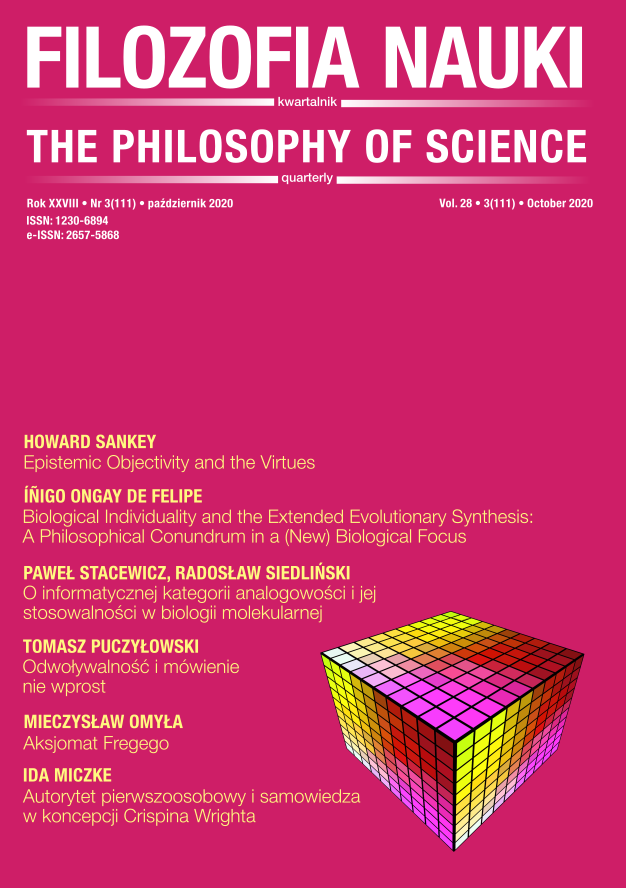Biological Individuality and the Extended Evolutionary Synthesis
Biological Individuality and the Extended Evolutionary Synthesis
A Philosophical Conundrum in a (New) Biological Focus
Author(s): Íñigo Ongay de FelipeSubject(s): Special Branches of Philosophy
Published by: Uniwersytet Warszawski - Wydział Filozofii i Socjologii, Instytut Filozofii
Keywords: evolution; individuality; modern synthesis; extended evolutionary synthesis
Summary/Abstract: There has been much debate in evolutionary biology concerning the extension of some of the central tenets of the modern synthesis (MS). Due to recent developments in evolutionary developmental biology (Evo-Devo), epigenetics, phenotypic and developmental plasticity, niche construction and ecological inheritance, and animal traditions, an increasing array of leading evolutionary biologists, theoretical biologists, and philosophers of biology agree that the structure of the MS needs to be reconsidered. This paper reflects on the connection between this scientific debate and the notion of biological individuality. The paper proposes a discussion of two levels at which the concept of individuality intersects with the extended evolutionary synthesis (EES), as well as the tension between two roles for individuals in such an extended theoretical framework. First, taken at face value, many developments in evolutionary thinking point to an organismcentered view of evolutionary processes. Second, the concept of individuality appears to have been hugely modified in the history of evolutionary thought. Indeed, both multilevel selection theory and the framing of Darwinian individuality transitioning among levels in evolution entail an expansion of the notion of individuality. Such an extended notion leaves room for aggregations of (classical) organisms counting as evolutionary individuals while (allegedly proper) organisms may coherently be viewed as populations. It follows that while individuality has become increasingly relevant for the renewed view of evolution that the EES presents, the boundaries of the notion seem blurrier and more fluid than ever. The paper concludes with a call for pluralism with regard to individuals (and many other evolutionary concepts).
Journal: Filozofia Nauki
- Issue Year: 28/2020
- Issue No: 3 (111)
- Page Range: 25-45
- Page Count: 21
- Language: English

